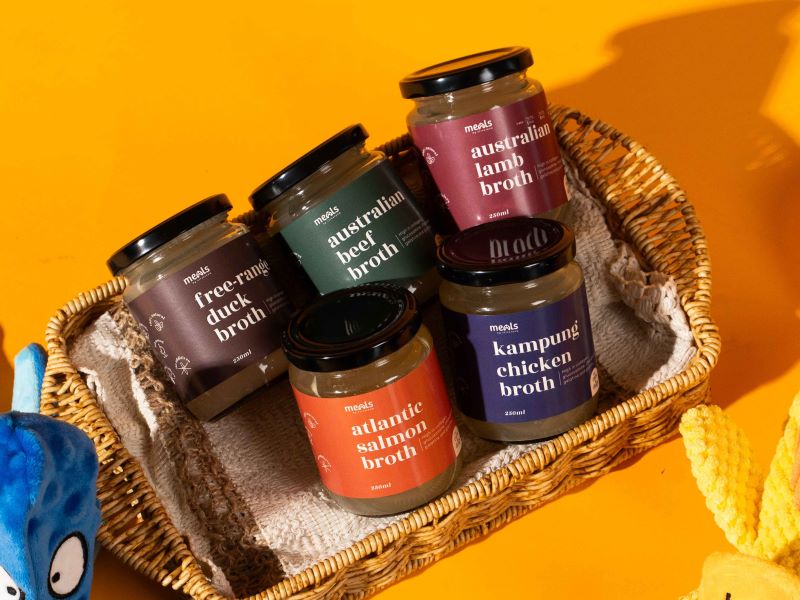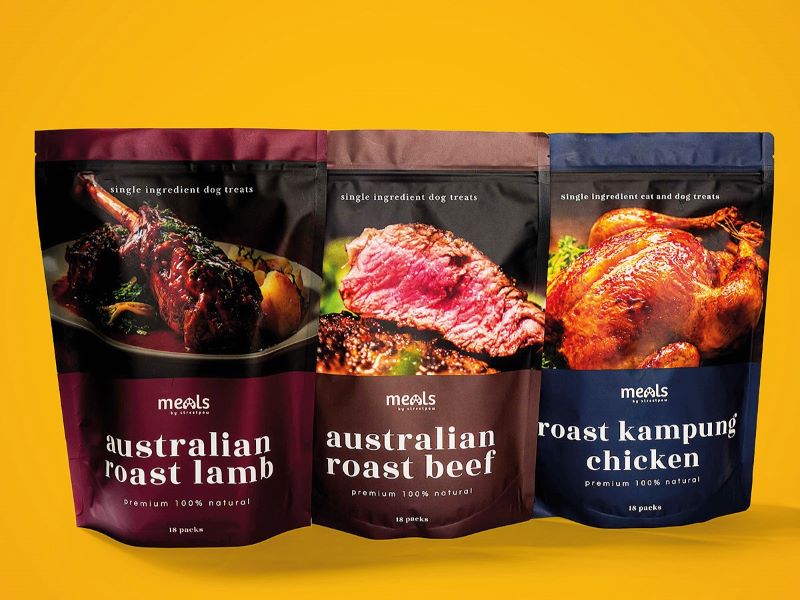
Tang with his husky Winter (All photos: StreetPaw)
Animal lover Keith Lester Tang, 30, recalls getting his first fish pet when he was three. “I remember asking my grandma to take me to a shop to buy a fish. Then, when I was eight, we got terrapins, which are still very much alive and live in a pond at our house. They are now 22.”
After graduating from law school in 2015, Tang ran a tech company, managing a system for part-time workers at Amazon Singapore before he went on to start a wedding platform that helped people plan their ceremony within 30 minutes by selecting some images and elements they envisioned for their big day.
“For about six months, we had around 80 vendors, but it eventually failed because of the pandemic; weddings were not happening and vendors were closing down. I was lost for a bit, to be honest,” he says.
Although there have been many changes in his life, one thing that remains constant is his love for animals. Besides fish and turtles, Tang is also a parent to two beautiful nine-year-old huskies, Roxy and Winter. Unfortunately, the former used to suffer from regular stomach upset.
“We had to take Roxy to the vet every month. Test after test, the vet said it was something related to genetics. So, obviously, I had to find a way to solve the problem because she was in distress and it was very worrying. Every two days, she would have an episode that even led to vomiting.”
While he was consistently cooking for his dogs, Tang was not entirely sure about the kind of diet that would be good for them. So, he scoured for a veterinary nutritionist in the US to help formulate food and broth for his dog. “Within a week, my problems were solved,” he says. “Friends who noticed the change — like how my dog’s fur had grown thicker and healthier — asked whether I could make the broth for their pets as well. I did it for one friend, then it became two, then three.”
broth_series_with_props.jpg

More and more people started asking whether he could do them a favour, as some of their pets also struggled with different kinds of health issues. “I started charging them. I said, ‘I’m gonna charge you for the meat. I’m not giving it to you for free anymore because it is too expensive.’”
The feedback he got was promising and encouraging. “One dog had major joint issues and couldn’t really walk. But after three weeks of consuming the broth, it started walking, although still limping. Another struggled with allergies and its skin cleared up after two weeks.”
Tang is not only nourishing his pets. He has been actively helping homeless cats and dogs because he believes they deserve to eat nutritious food, too. As he was always forking out his own money for this cause, he thought it might be a good idea to start a brand that could sustain and support his passion. “The feedback we received was generally positive, and that’s when I thought this might be worth pursuing.”
Early last year, Tang established StreetPaw with the aim of feeding animals with real food. He began selling homemade broth through pop-up markets and booths across the Klang Valley. Currently, there are five flavours: kampung chicken, duck, Australian lamb, Australian beef and Atlantic salmon.
Then, the brand launched its second product, the Roast Series. Each pack comprises 18 sachets containing real cooked meat. “The pet food that we sell can even be consumed by humans; they just don’t have salt and sugar. We use a different roasting technique to ensure the nutrients are retained.”
After the main ingredients of lamb and beef are collected from a wholesaler, they are processed at StreetPaw’s designated kitchen, complete with an autoclave machine that uses steam under pressure to kill harmful bacteria, viruses, fungi and spores on items.
“Except for bones, which the wholesaler helps us chop, the meat is all hand-cut into cubes before we roast them for a period of time. The treats are then filled into sachets, sterilised and placed in bigger packaging. Everything is processed manually,” Tang says.
roast_series_set.jpg

While the products were originally prepared for dogs, StreetPaw extended its offerings to include options for cats. “We use the same type of meat with the same cooking method, but we mince the flesh into smaller pieces because cats don’t chew.”
Felines are harder to please than dogs, Tang observes. The team had to run a test on more than 200 cats to ensure the products were good enough to market. “We initially made food for dogs. But some customers also have cats. So, when they bought the item [for their dog], we gave out free samples for their cats and asked for their feedback.”
Their biggest motivation to start rolling out new products is demand. “We sell only products that people want. If there’s no request, we will not do it because it’s too risky.”
Last December, StreetPaw collaborated with low-cost airline AirAsia on a range of items including Roast Kampung Chicken, Australian Roast Lamb and Australian Roast Beef, which are sold on board. The product poster, which displays the back of a cat waiting by the front door, poses the question: “Hey, what did you bring back for me from your vacation?”
“The idea is for owners to secure some souvenirs for their fur babies. When people go on holiday, they tend to buy stuff for family and friends, but forget about their cats or dogs. So, we are giving them the last opportunity to get something for their pets before they go home.”
Any plans to expand the product range? “Yes, but we’re taking it slow. We just want to ensure we make the best sustainable products, and those that pet owners like. We don’t want to just keep growing the SKU (stock-keeping unit), try to make more money, and then the quality drops.”
StreetPaw aims to make the world a better place for homeless animals by contributing a portion of its profits towards feeding strays and supporting shelters. “In the long run, we want to ensure stray and rescued animals are able to eat real food instead of settling for low-quality kibbles,” Tang says.
This article first appeared on Feb 26, 2024 in The Edge Malaysia.


